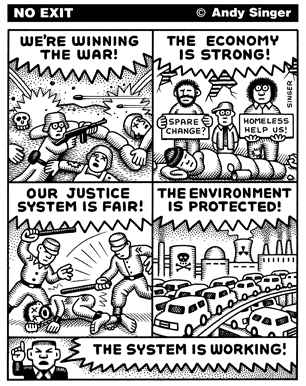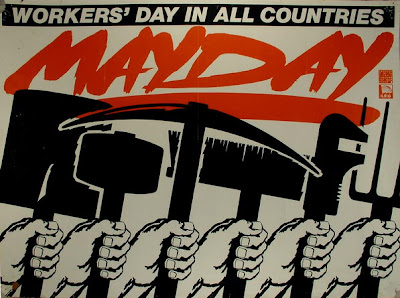I confess. I'm a food addict. In fact, I eat
every single day, and if I go too long without food I begin to have withdrawal symptoms, such as growling in the tummy and lightheadedness.
I figure, since I have to eat, I might as well be as responsible as possible with my food choices. That means eating a varied, fresh, and healthy diet to fortify the ol' bod, and trying to make the best choices possible for the environment and social justice.
It's really not that hard to eat like this most of the time. To illustrate that, I thought I might try posting a recipe today. After the recipe, I'll analyze what makes it responsible.
If you like this idea, please let me know (you can
vote in the poll to the right), and I'll make it a regular feature.
The Recipe:
Lentil SaladThe perfect lunch. Best prepared the night before so the flavours can blend overnight.
Serves 4
1 1/2 cups dried brown (aka green) lentils
3 tablespoons fresh lemon juice
1 - 2 tablespoons olive oil
1/2 teaspoon dried thyme
pinch salt & pepper
1 clove garlic, crushed
2 cups chopped in-season vegetables, chosen from this list: tomatoes, cucumber, celery, green or red pepper
Optional, but highly recommended: 1/2 cup feta cheese, crumbled, and a couple of sliced olives
Lettuce
Place lentils in a large pot. Cover with water to 2 inches above lentils, and bring to a boil. Cover, reduce heat, and simmer 20 minutes or until tender. Drain well, and set aside to cool.
Combine lemon juice, olive oil, herbs, and garlic. I like to shake everything until it is mixed really well.
Mix lentils, vegetables, and cheese (if using) with the dressing. Toss gently to coat. Chill to allow flavours to blend. Serve on a bed of lettuce leaves.
Health Benefits:Vegetables are like nutritional superstars, with tons of vitamins, fibre, potassium, antioxidants, and few calories (something we generally have too much of in our land of plenty). The more you can eat, the better off you'll be. Olive oil provides a splash of healthy monounsaturated fat. The lentils add protein, and a nice balance of soluble and insoluble fibre. All in all, this is a recipe that is good for overall health, weight loss, high cholesterol, and hypertension (if concerned about the salt, avoid the Feta).
Environmental Benefits:Reducing consumption of meat means you are reducing your consumption of fossil fuels, since meat is generally
far more resource-intensive than legumes. Try to get your vegetables locally and in season to
use even less fossil fuel. Here in the big Canadian city in May, that means hothouse tomatoes, peppers and cukes, new baby greens or living lettuce, but no celery yet.
 Who killed Dudley George? The Ipperwash report, just released, found that although Mr. "I want the fucking Indians out of the park" did not directly order the police to Ipperwash, his government, along with the federal government, still shares some of the blame.
Who killed Dudley George? The Ipperwash report, just released, found that although Mr. "I want the fucking Indians out of the park" did not directly order the police to Ipperwash, his government, along with the federal government, still shares some of the blame. 








































